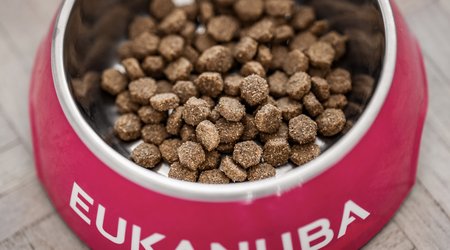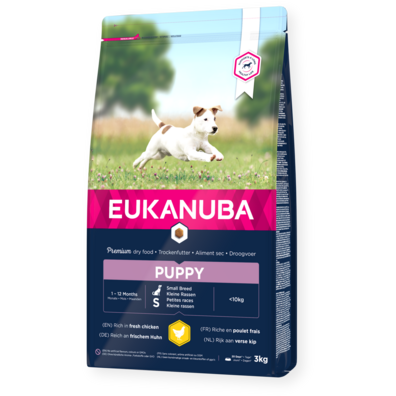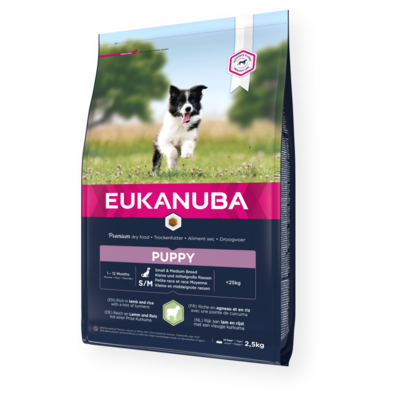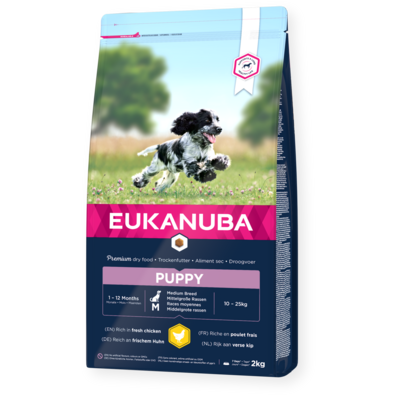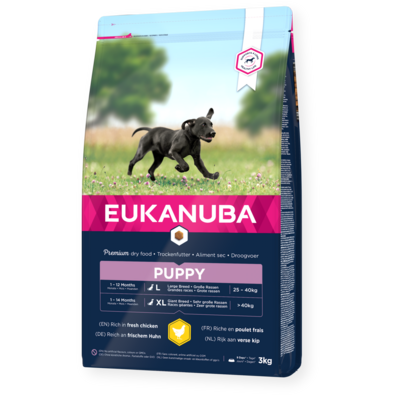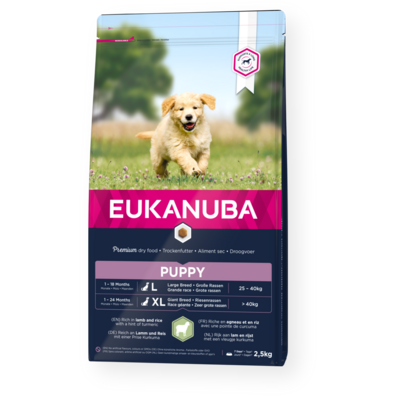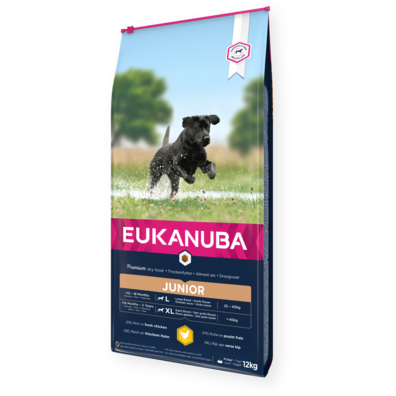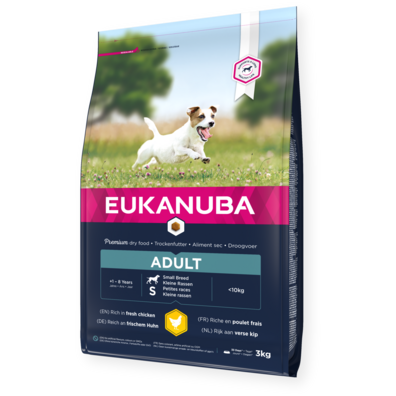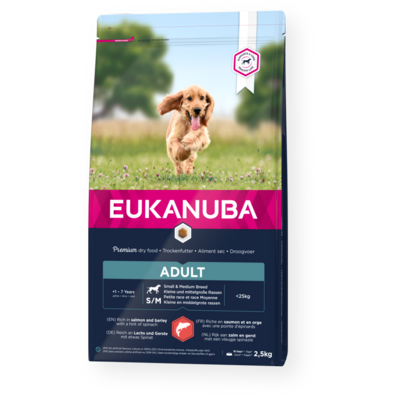Why do recommended feeding guidelines drop around 6 months of age?
You love your puppy, and making sure you’re providing the right amount of healthy nutrients is important. This is the time you’re super focused on doing the right thing to help your pup grow into a healthy adult dog, so it’s not uncommon to develop concerns when you see a sudden, and often significant, reduction in feeding quantities around 6 months of age
Content
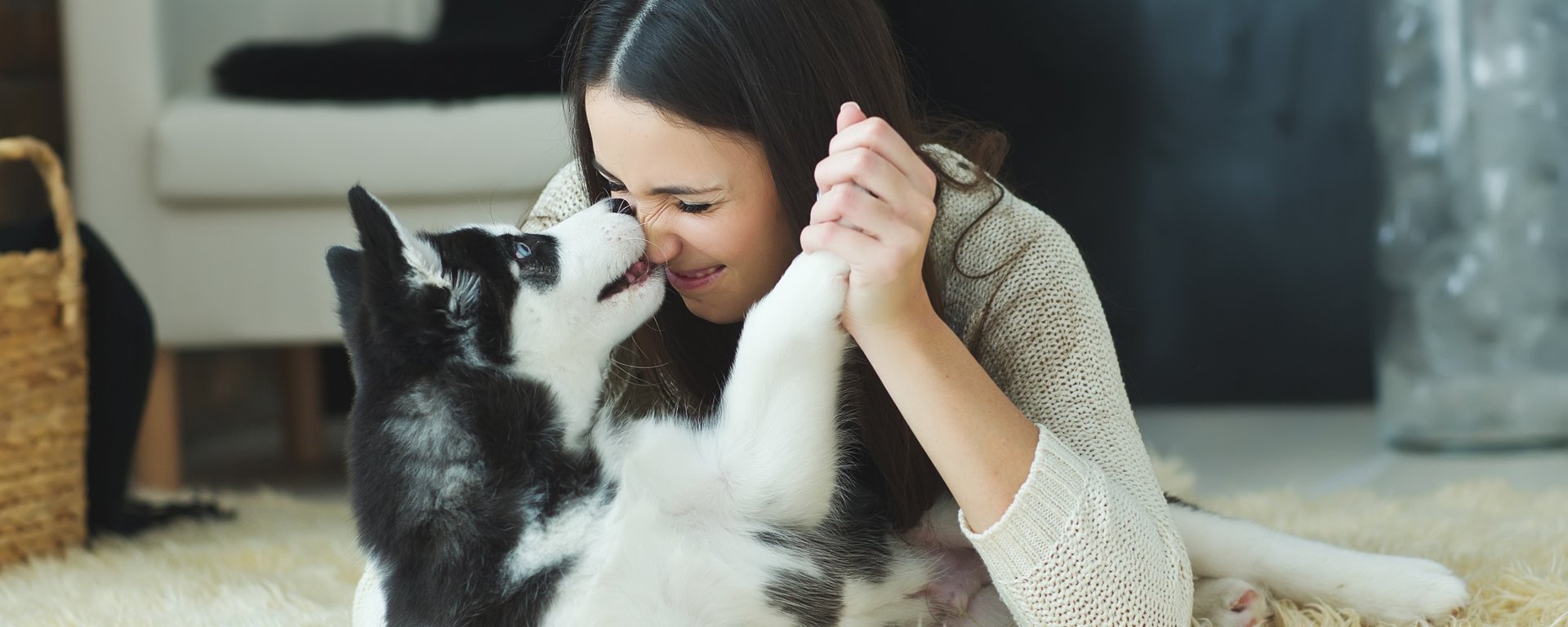
They grow really quick
Here is why a reduction in feeding quantities is recommended at 6 months
All puppies grow at an extraordinarily fast rate. Larger breeds in particular will double their birth weight in the first 10 days of life, whereas it takes a new born baby 16 weeks to do this1,2.
In addition to this, all puppies experience their most rapid rate of growth during their first six months of life, needing nearly two to three times the energy of an adult dog! After this age, their rate of growth slows down significantly. If you continue feeding your pet a high portion as their growth rate slows, they will gain weight as fat and as the epidemic of obesity in dogs is so dangerous for overall health and wellbeing, this should be avoided.
In addition, if your puppy is over eating and exceeding his or her daily kcal requirement, they may either pass more stools, or have looser stools because of the extra calories they cannot use.
We recommend reducing the amount you give gradually over 3 or 4 days. This should help your dog adjust to the slightly smaller amount.

Keep in mind
Guidelines are just guidelines
All dogs are unique and different, so always keep in mind that the recommended feeding amounts shown on packaging are just guidelines. Your puppy may need more or less food depending upon activity and temperament.
You may want to adjust the amount according to your pup’s activity on a daily basis.
As a guide, if you are feeding the right amount, your puppy should have one small, firm stool for every meal, with possibly one more. If you think your puppy is passing stools more frequently or producing larger stools, you may want to re-check the feeding guidelines to ensure you are giving him the right amount of food. Alternatively, check with your local vet to discard any other causes.
